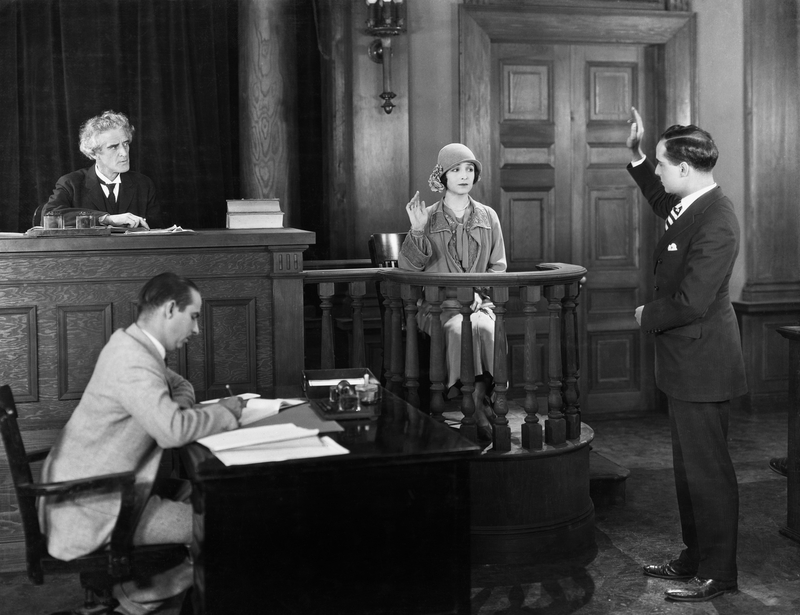In California workers’ compensation trials, witnesses play a major role in providing the testimony needed to clarify the facts of the case. One tool that helps ensure witness participation is the subpoena. While most are familiar with subpoenas, the acknowledgment part can sometimes be overlooked, yet it’s a useful tool, especially when dealing with busy witnesses.
What is a Subpoena Acknowledgment and Why Does It Matter?
A subpoena acknowledgment is essentially a signed confirmation from the witness that they’ve received the subpoena and understand their obligation to testify or produce documents. This document becomes particularly helpful when witnesses are put “on call.” Instead of forcing the witness to sit in court all day, they can continue their daily work and only come in when needed. Here’s why it’s useful:
- Saves Witnesses’ Time: When a witness is placed “on call,” they don’t have to waste an entire day sitting at the courthouse. This is especially beneficial for busy professionals, who may be more cooperative if their time is respected. The acknowledgment simply formalizes that they will be ready when called but don’t need to be physically present until their testimony is required.
- Keeps the Trial Moving: Without an on-call process, courts could get bogged down waiting for witnesses to show up. By confirming their on-call status through the acknowledgment, you create flexibility in scheduling and ensure smoother trial proceedings.
- Ensures Accountability: By signing the subpoena acknowledgment, the witness is acknowledging their duty to appear when called. This protects against any future claims that they didn’t know about their obligation, providing legal protection if the witness doesn’t show up.
In short, using subpoena acknowledgments helps make trials more efficient while ensuring that witnesses are properly held to their responsibilities.
Why We Need Employer Witness Names Before the MSC
When prepping for a workers’ compensation trial, another area where some employers can be hesitant is providing witness names. Whether it’s because they don’t understand the importance or are simply reluctant, it’s a hurdle we often face. But getting full witness names—before the Mandatory Settlement Conference (MSC)—is vital for building a solid defense.
Why Full Employer Witness Names Are Important
- Rebutting the Applicant’s Claims: In workers’ compensation cases, the employee will usually offer their version of events, which may paint a specific picture about workplace conditions, the injury itself, or the employer’s role in the situation. To push back, we need witnesses who can offer a different perspective. Whether it’s a supervisor, co-worker, or HR representative, having their testimony helps challenge any false or misleading claims.
- Presenting the Employer’s Side: Without witnesses, the employer’s side of the story doesn’t get told. These witnesses can testify about key issues like whether safety protocols were followed, what the actual work environment was like, or whether the injury happened the way the employee says it did. This testimony can make or break a case.
- Full Legal Names Are Necessary: We need full, accurate names for subpoenas and trial prep. If we don’t have this information ahead of time, it can lead to logistical issues, like subpoenaing the wrong person or delaying trial preparations. It’s also essential for cross-examination and credibility checks.
Why Some Employers Resist and Why It’s a Problem
Some employers hesitate to provide witness names, perhaps believing it’s unnecessary or because they fear it will involve employees in a complicated legal process. However, this approach can seriously harm the defense:
- Missed Opportunity for a Strong Defense: Without witnesses, we could lose the ability to counter the employee’s narrative effectively. Even if the employer thinks it’s unnecessary, not having witness testimony can weaken the defense.
- Unbalanced Story at Trial: Without the employer’s witnesses, the judge or arbitrator will only hear one side of the story from the stand. This makes it harder to challenge the employee’s account, potentially leading to an unfavorable outcome.
Why It’s Important to Have These Names Before the MSC
Getting witness names before the MSC is essential for trial prep and even settlement negotiations. The MSC is a chance to settle the case without going to trial, but if we don’t know what witnesses will testify, we’re left guessing about the facts. Having full names early helps both sides understand the strengths and weaknesses of their case, making it easier to resolve disputes or prepare for trial.
Final Thoughts
Subpoena acknowledgments and early disclosure of employer witness names are two key components of successfully navigating workers’ compensation litigation. Subpoena acknowledgments streamline trial processes by allowing witnesses to be on-call rather than sitting in court all day. Providing full employer witness names before the MSC ensures that the defense is ready to present its case effectively.
Michael D. Peabody is an experienced partner and workers’ compensation attorney for Bradford and Barthel’s Woodland Hills office. He has testified in legislative committees in California and Oregon and is an active member of the California and US Supreme Court bars. If you have questions about workers’ compensation issues, please feel free to contact him at mpeabody@bradfordbarthel.com.
Viewing this website does not form an attorney/client relationship between you and Bradford & Barthel, LLP or any of its attorneys. This website is for informational purposes only and does not contain legal advice. Please do not act or refrain from acting based on anything you read on this site. This document is not a substitute for legal advice and may not address every factual scenario. If you have a legal question, we encourage you to contact your favorite Bradford & Barthel, LLP attorney to discuss the legal issues applicable to your unique case. No website is entirely secure, so please be cautious with information provided through the contact form or email. Do not assume confidentiality exists in anything you send through this website or email, until an attorney/client relationship is formed.



